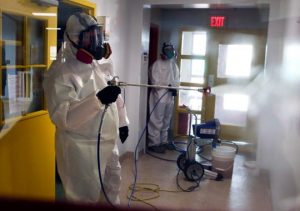Positive viruses and bacteria are transmitted through close interaction between people. Several circumstances increase such contacts, including the following:
- Living or waged with other people
- Sharing pieces of stuff
- Charitable care to a person
- Visiting public areas
There are a number of events that you can take to stop the spread of viruses and bacteria.
- Avoid large proceedings and mass gatherings.
- Wear a cloth face mask in community areas
- Avoid close interaction with anyone who is sick or has symptoms.
- Wash your hands regularly with soap and water for at least 20 seconds, or use an alcohol-based hand sanitizer that comprises at least 60% alcohol.
- Shield your mouth and nose with your elbow or a tissue when you cough or sneeze. Toss away the used tissue.
- Avoid touching your body parts.
- Clean and disinfect exteriors you often touch on a daily basis.
If you have a chronic medical disorder and may have a higher risk of serious illness, crisscross with your doctor about other ways to protect yourself like professional disinfecting services.
Wear a mask:

The CDC recommends wearing cloth face covers in public places, such as the grocery store, where it’s difficult to avoid close interaction with others. It’s especially suggested in areas with continuing community spread. This updated advice is based on data showing that people with COVID-19 can communicate the virus before they realize they have it.
Using masks in public may help decrease the spread from people who don’t have symptoms. Non-medical cloth masks are optional for the public. Surgical masks respirators are in short source and should be earmarked for health care providers.
May be ill with COVID-19:
If you grow symptoms and you’ve been exposed to the virus COVID-19, please contact your doctor for medical advice. If you need to go to the doctor or hospital, call fast so health care earners can take steps to ensure that others aren’t exposed.